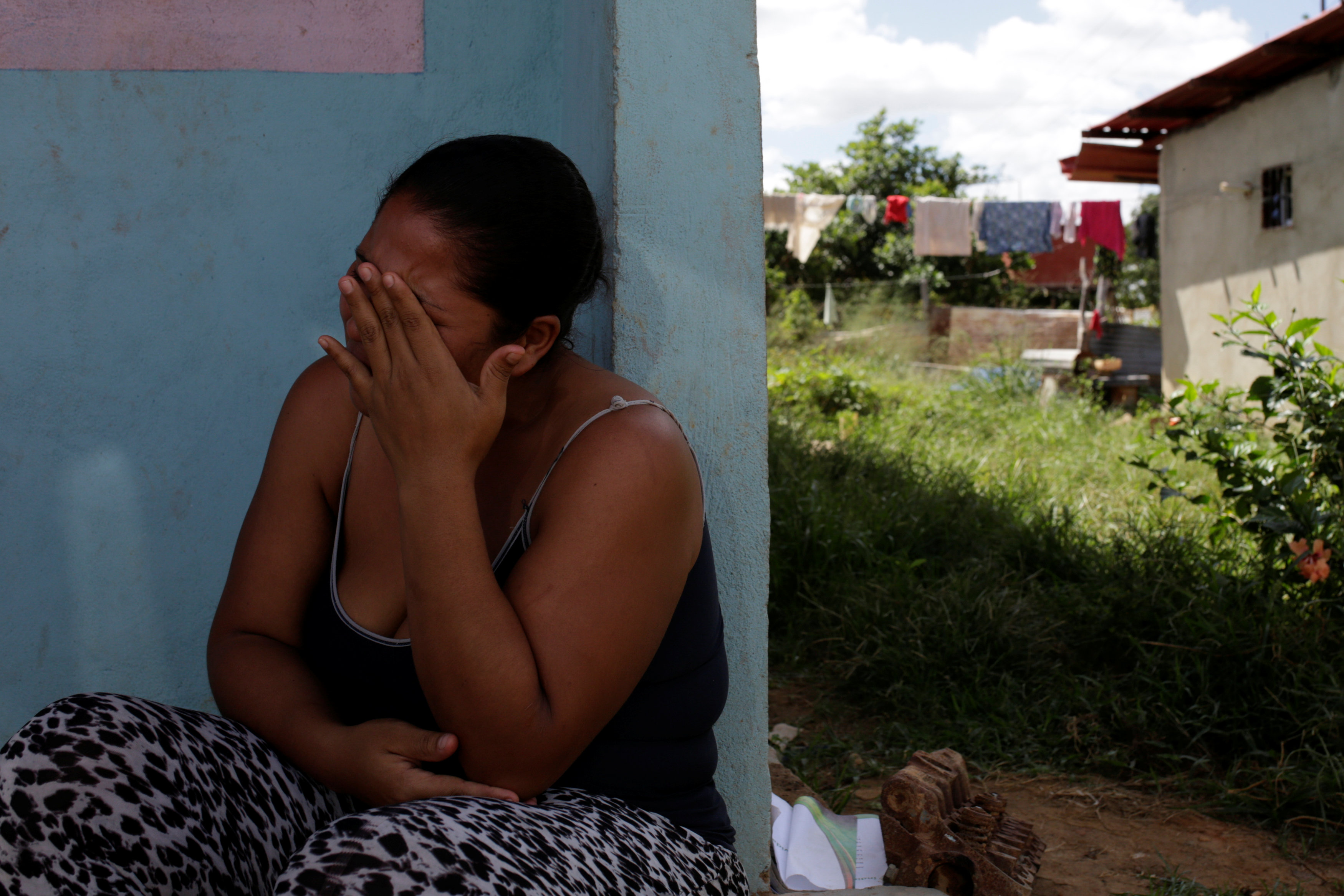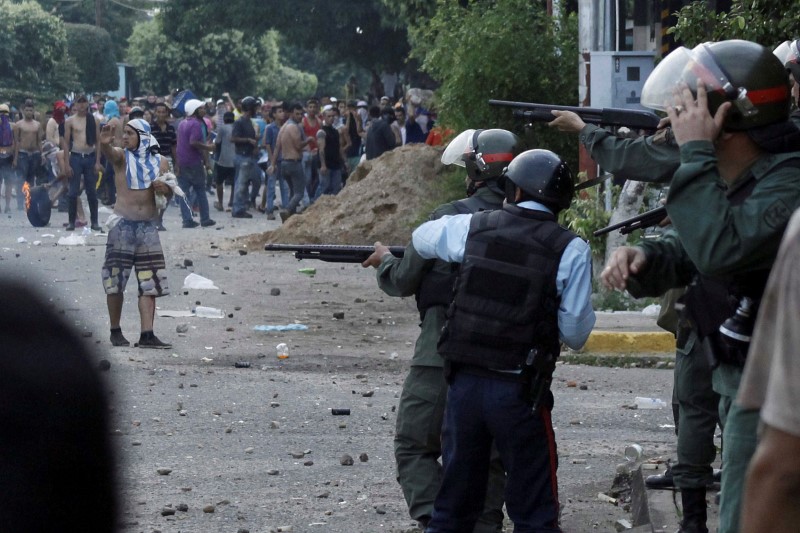
By Alexandra Ulmer and Maria Ramirez
PARIAGUAN, Venezuela (Reuters) – Eliannys Vivas, 9, started to get a sore throat on a Friday last month in this languid Venezuelan town where papaya trees shade poor cinder-block homes.
Five days later, Eliannys was dead, likely a victim of diphtheria, a serious bacterial infection that is fatal in 5 to 10 percent of cases and particularly lethal for children.
Her death and a wider Venezuelan outbreak of diphtheria, once a major global cause of child death but increasingly rare due to immunizations, shows how vulnerable the country is to health risks amid a major economic crisis that has sparked shortages of basic medicines and vaccines.
Eliannys’ story is also one of misdiagnoses and missed signals worsened by government secrecy around the disease. Her family had never heard of diphtheria and local doctors did not immediately suspect it, despite the infection having affected hundreds of people just a few hours away in Bolivar.
After Eliannys was taken to a local hospital, doctors, thinking the disease was asthma, used a sort of inhaler on her.
But the usually chatty girl – “a little parrot,” in the words of her day-laborer father — kept weakening, so doctors transferred her to a larger government hospital once an ambulance became available hours later.
At El Tigre hospital, all the devices to examine throats had broken three years ago, so no one checked her properly, according to a nursing assistant.
“They said it was asthma, asthma, asthma,” said her mother, Jennifer Vivas. But as Eliannys struggled to speak, she was rushed to a third and then a fourth hospital in neighboring Bolivar state.
There, doctors discovered with horror Eliannys suffered from grossly inflamed throat membranes – the classic symptom of diphtheria.
But even the fourth hospital lacked adequate treatment for the infection, so she received only a half dose of antitoxins and no penicillin at all, according to a medical professional who treated her there.
As Eliannys’ airwaves blocked up, she suffered two successive heart failures and died on Jan. 18.
“If the diphtheria diagnosis had been made earlier and she had gotten antitoxins, she would have had a chance of surviving,” the source who treated her said, asking to remain anonymous because the government has banned health professionals from speaking to the media.
DIPHTHERIA RETURNS
Venezuela controlled diphtheria in the 1990s, but it reappeared in the vast jungle state of Bolivar in mid-2016.
At least two dozen children died last year, doctors say, and cases are now thought to have spread to a half-dozen other states.
Shortages of basic drugs and vaccines, emigration of underpaid doctors, and crumbling infrastructure have made it easier for diseases to spread, medical associations said.
Many poor and middle-class Venezuelans also have weakened immune systems because they are no longer able to eat three meals a day or bathe regularly due to product scarcity, reduced water supply and raging inflation.
Government secrecy has compounded the problem.
“The fact people don’t know (about diphtheria) helps the bacteria spread,” said Caracas-based epidemiologist Julio Castro, who has been tracking the diphtheria outbreak and who showed photos sent to him of patients with thick white membranes coating their throat.
The unpopular leftist government of President Nicolas Maduro said in October there were no proven cases of diphtheria and admonished those seeking to spread “panic.”
It has since informed the World Health Organization of 20 confirmed diphtheria cases and five deaths, and emphasized there is a major vaccination drive under way, but has yet to provide a full national picture of the disease’s effects amid a generalized clampdown on data.
The Information and Health Ministries, as well as the Venezuelan Social Security Institute, which is in charge of some drug distribution and hospitals, did not respond to multiple requests for comment about Eliannys’ case and diphtheria more generally.
The only other country in the region with a significant number of confirmed diphtheria cases last year was Haiti with 33, the WHO said in December.
MORE ILLNESS AHEAD?
Doctors think diphtheria first spread from the rough-and-tumble illegal gold mines in Bolivar state, which is attracting poor Venezuelans as the minimum monthly wage languishes around $30.
After Eliannys’ family was forced to start skipping dinner in December, her father, Tulio Medina, decided to work in Bolivar’s yucca and yams plantation where he made more money but might have brought the infection home.
The disease has already spread to capital Caracas, where doctors say a 32-year-old mother died last year, and could yet affect more states.
With the Venezuelan pharmaceutical association estimating that roughly 85 percent of drugs are unavailable at any given time and in light of the short supply of vaccines, doctors are bracing for further increases in illnesses like malaria, pneumonia and tuberculosis.
Venezuela’s rate of immunization with the pentavalent vaccine, which protects children from five major infections including diphtheria, had slipped to 78 percent between January and November 2016, according to Health Ministry figures leaked to former Health Minister José Felix Oletta and seen by Reuters.
“At this rate, we’re going to see more illnesses, more deaths, more doctors leaving the country,” said pediatrician Hugo Lezama, the head of Bolivar’s doctors association, who himself earns only a handful of dollars a month.
“Those of us who stay are going hysterical trying to perform miracles so our patients don’t die.”
(Writing by Alexandra Ulmer; Editing by Christian Plumb and Matthew Lewis)













